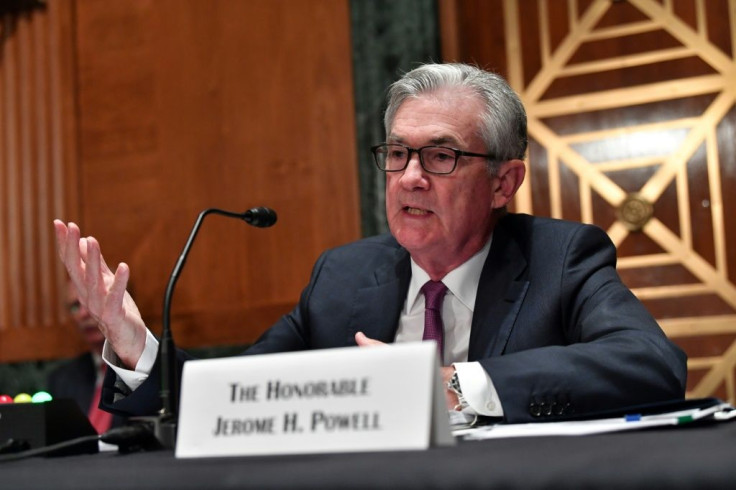US Fed Officials Expect To Pull Back On Stimulus This Year
US central bankers expect to start pulling back on stimulus measures this year, if the economic recovery continues, according to the minutes of the July policy meeting released Wednesday.
While the discussions showed some division among Federal Reserve officials on the prospects for inflation and employment, with few exceptions they see a slowdown in the massive asset purchases in coming months.
But they also recognized the challenges facing policymakers, as well as the uncertainty about the outlook amid rising Covid-19 infections driven by the Delta variant, as well as the global supply chain bottlenecks hurting businesses.
The Fed slashed interest rates to zero at the start of the pandemic in March 2020 and began buying huge amounts of bonds to provide liquidity to the world's largest economy and support the recovery.
As businesses shutdown nationwide, the central bank vowed to keep the stimulus measures in place until it had achieved "substantial progress" towards its maximum employment goal and inflation was on track to hold above the two-percent target for some time.
"Most participants" at the July 27-28 meeting of the policy-setting Federal Open Market Committee (FOMC) "judged that it could be appropriate to start reducing the pace of asset purchases this year," the minutes said.
The majority felt recent inflation data satisfied the central bank's objectives, and unemployment was near to doing so, after falling to 5.4 percent from 14.8 percent in April of last year.

Several holdouts however urged patience and thought the first step in tapering should wait until next year, given the Delta infections could "damp the economic recovery," the report said.
The Fed has been buying $80 billion a month of US Treasury debt and $40 billion of agency mortgage-backed securities.
The officials recognized the uncertainty about the outlook "was quite high," given the global supply shortages caused by shipping and production constraints, which have fueled rising prices, although they have been concentrated in a limited number of sectors.
And several officials noted the difficulty in executing the taper plan which could be misread as the first step towards raising the Fed's benchmark borrowing rate.
Slowing "asset purchases should not be interpreted as the beginning of a predetermined course for raising the federal funds rate from its current level" which is a separate decision, the minutes said.
But some officials "cautioned that it could be challenging for the public to disentangle deliberations about the two tools."
That communications challenge will fall largely on Fed Chair Jerome Powell, who is due to deliver a highly-anticipated speech next week to the annual central banking conference in Jackson Hole, Wyoming.
© Copyright AFP 2024. All rights reserved.





















